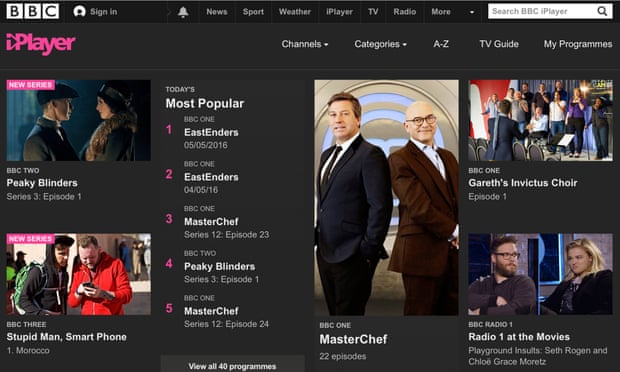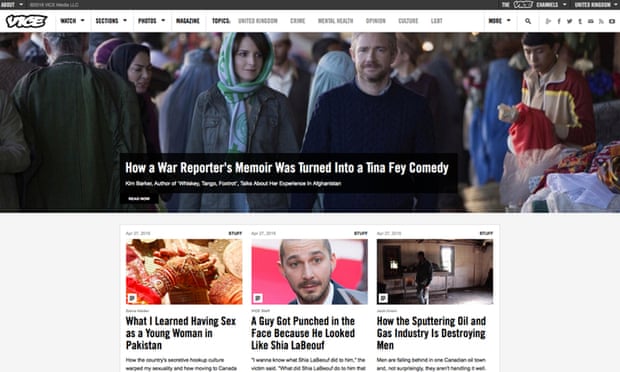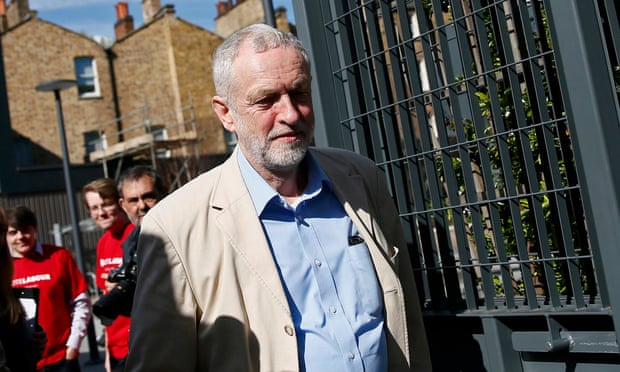(1)- Amazon launches gaming and 4K streaming Fire TV update
(2)- The Media Column: British TV is being bought up and outgunned by the Americans, leaving the BBC with a dilemma
(3)- BuzzFeed to cover more local news as it expands UK editorial team
(4)- Social media 'rehab': Is a 24/7 texting helpline really the best method?
(5)- Music streaming just became a billion-dollar industry
(6)- Forty percent of US millennials still pay for news, poll finds
(7)- Meryl Streep defends feminist credentials as Suffragette opens London film festival
(8)- Richard Desmond boosts Daily Star sales with price cut
(9)- Female technology journalists report abuse is still the name of the game
(10)- News Corp offers Times and WSJ digital bundle for corporate users
(11)- Why the future of newspapers is not all doom and gloom
(12)- Map shows parts of UK most excluded from digital world
(13)- Sun website to scrap paywall
(14)- Freedom of Information Act must be strengthened, says Tom Watson
(15)- Can dropping the paywall and upping the story count boost Sun’s website?
(16)- Kate Winslet says children being harmed by social media
(17)- BBC shelves plans to shut news channel
(18)- Marketing 2020: next generation talent will be key to filling digital skills gap
(19)- Sun website traffic recovers as Mirror slips back
(20)- Eiffel Tower meets peace sign in show of solidarity after attacks
(21)- Two-thirds of Britons will own a smartphone by 2018, research finds
(22)- Twitter raids Sky for new head of UK news
(23)- Mail Online US almost doubles advertising growth
(24)- YouTube Kids: campaigners criticise app for its 'junk food' videos
(25)- Time Out to cut about 40 staff in UK and US
(26)- The Independent’s blog site hit by ransomware attack
(27)- Twitter warns users they may have been hacked by 'state-sponsored actors'
(28)- Daily Mail is cruel and childish about the Duchess of Cambridge
(29)- Sun website traffic rises by a quarter – but it is eclipsed by the Mirror
(30)- Can Donald Trump's social media genius take him all the way to the White House?
(31)- Facebook and Uber team up to offer Messenger users taxi trips
(32)- The Daily Telegraph fined £30,000 for email instructing readers to vote Conservative
(33)- US digital advertising in 2016: things will get better
(34)- Two New Jersey newspapers denounce Chris Christie's 'abysmal' performance
(35)- The social housing tenants taking to Twitter to influence policy
(36)- Daily Telegraph to withdraw devices monitoring time at desk after criticism
(37)- Phone hacking: The Sun accusers open a new chapter
(38)- Daily Mail takes full control of Australian website
(39)- Sun website traffic falls by more than 5% despite axing of paywall
(40)- How tweeting about floods became a civic duty in Jakarta
(41)- YouTube star Zoella reaches 10m subscribers milestone
(42)- Daily Mail website's ad revenues surge as paper announces price hike
(43)- Russian magazine cyber-attacked and fined after article on Putin's daughter
(44)- James Franco to direct Twitter tale of stripper Zola's sordid road trip
(45)- Independent aims to keep stars and boost quality in digital shift
(46)- Independent and Independent on Sunday print closures confirmed
(47)- Facebook sets up 'social VR' team to explore virtual reality beyond games
(48)- Telegraph suspends comment on relaunched online content
(49)- Beauty site apologises for mistaking Whoopi Goldberg for Oprah Winfrey at Oscars
(50)- Sun hasn't decided which side to back in EU referendum, claims its editor
(51)- Seized Turkish opposition newspaper toes government line
(52)- Online harassment of women at risk of becoming 'established norm', study finds
(53)- BBC and ITV in talks to launch a Netflix-style streaming service
(54)- Mashable launches French-language site with France 24
(55)- Netflix races ahead of Amazon and Sky with 5m UK households
(56)- Sun ordered to admit British Muslims story was 'significantly misleading'
(57)- Fake Brussels YouTube videos prove ease of digital disinformation
(58)- The eagle dares: Independent goes out of print on a scoop
(59)- Using Twitter and Facebook images of tragedies raises ethical dilemmas
(60)- The Times drops online rolling news for four editions a day
(61)- Daily Mail goes nuclear over Barack Obama 'peace sign'
(62)- Twitter to live stream NFL's Thursday night football
(63)- How newsroom pressure is letting fake stories on to the web
(64)- Publishing platform Medium may be blocked in China, reports say
(65)- Can the web save the press from oblivion?
(66)- Football clubs trawl social media for gaffes by transfer targets
(67)- Corbyn: Labour must use social media to fight rightwing press attacks
(68)- Trinity Mirror reports 19% print ad slide as it confirms the New Day's closure
(69)- Vice UK rejects call for union recognition
(70)- BBC follows Netflix in using online viewing data to help it pick new shows
(71)- Periscope used by French teenager to live-stream her own suicide
(72)- Four young Egyptians in custody for video making fun of the government
(73)- Egypt's activists turn to social media to call for satirists' release
(74)- Facebook accused of censoring conservatives, report says
(75)- The Independent's website traffic rises by more than 6%
(76)- Suddenly, national newspapers are heading for that print cliff fall
(77)- DMGT issues profit warning after double-digit fall in print ads
(78)- Twitter abuse - '50% of misogynistic tweets from women'
(79)- EU referendum poster aimed at minority ethnic vote causes controversy
(80)- Labour MP says she may leave Twitter over trolls' rape abuse
Monday, 9 May 2016
(70) BBC follows Netflix in using online viewing data to help it pick new shows
Link: http://www.theguardian.com/media/2016/may/07/bbc-netflix-data-twitter-facebook-bbc-id
 The BBC is following Netflix in using online viewing data to help it decide which programmes to make. It is also experimenting with using social media such as Twitter and Facebook to help it make commissioning decisions. The experiments are part of the corporation’s myBBC project announced by director general Tony Hall last year to “reinvent public service broadcasting through data”.
The BBC is following Netflix in using online viewing data to help it decide which programmes to make. It is also experimenting with using social media such as Twitter and Facebook to help it make commissioning decisions. The experiments are part of the corporation’s myBBC project announced by director general Tony Hall last year to “reinvent public service broadcasting through data”.
Key data/statistical information:
What's my view?
As competition rises, so does the BBC iplayer in accord to staying as popular as Netflix and Amazon Prime. New and digital media has created TV streaming which seems to be very popular. The fact that the BBC are considering using social media to increase their popularity, could mean that BBC iplayer could become a great streaming service competitor in the near future.

Summary:
Key data/statistical information:
- The project has also gathered data from the 6 million-plus people who have signed up for a BBC iD that lets them access personalised services online
- The BBC are capturing 800m events a day
- Though many of the six million people who have signed up for a BBC ID do not appear to be using it regularly, more than a third up are using it at least once a month, and 10% are doing so ever day
- People who are signed in consume 44% more hours of content
- More than one million people have also signed up for a daily newsletter which recommends BBC content people might enjoy, up from 200,000 a year ago
What's my view?
As competition rises, so does the BBC iplayer in accord to staying as popular as Netflix and Amazon Prime. New and digital media has created TV streaming which seems to be very popular. The fact that the BBC are considering using social media to increase their popularity, could mean that BBC iplayer could become a great streaming service competitor in the near future.
(69) Vice UK rejects call for union recognition
Link: http://www.theguardian.com/media/2016/apr/27/vice-uk-union-recognition-nuj

What's my view?
Vice is known for using user generated content and uncensored news stories on their websites or on snapchat. Due to the lack of censorship that the company has, Vice UK refuses a union recognition in order to get pulled into censorship and gatekeepers.

Summary:
Vice’s UK arm has rejected a push for union recognition by a group of staff, bucking a growing trend that has seen unionisation at digital media businesses including the outlet’s main base in the US. Media group claims NUJ is ‘not used to innovative, digital workplaces’ and offers to set up staff council instead. At a meeting held in London on Tuesday, Vice UK staff were told that the National Union of Journalists would not be recognised at this point but instead were offered the chance to set up an internal staff council.
Key data/statistical information:
What's my view?
Friday, 6 May 2016
Secion B Exam Question
New and digital media have contributed to the process of globalisation, the idea that the world is becoming increasingly interconnected through global culture. Using your own case study, evaluate the impact of new and digital media have had on globalisation (48)
It has become clear that globalisation has become something great as the world is increasingly becoming interconnected through global culture. New and digital media has given globalisation the possibility to connect audiences from all around the world.
Consider social media as an example. Social media has allowed people to connect with each other as well as communicate with each other despite living on the other side of the world. Social networking sites such as Facebook, Twitter and Instagram has become increasingly popular because people are connected on to one site where they can talk and post pictures for all to see. The comment section on social media and websites allow the audience to discuss points and topics which then turn into debates. Also, Twitter has become very powerful over the last few years because this is the way in which the audience have the power to bring awareness to topics that they view as important. For instance, the Kesha incident that happened recently. Kesha was being abused by her music producer and people started using the hashtag #kesha to bring the problem to the attention of others. When a topic becomes trending, people around the world will be aware of the situation. This is how people now find out about things. "The internet is an empowering tool" (Al Gore) in which it allows the audience to connect and discuss things with each other on-line.
Another way new and digital media has contributed to the process of globalisation is by globalising the news. Globalisation revolves around the global news system that has developed as a result of technological advances. New and digital media has made it possible for all media to be accessed via a single device therefore creating new forms of interaction across and among media. We receive news from one device, such as our mobile phones, from looking at news sites or Twitter and we all see the most famous news. However, due to familiarity (Galtung & Rouge) we only see the news that affects us or America. The news is influenced by American culture imperialism. National broadcasters are capable of and responsible for selecting and repackaging information to best suit their conceptions of domestic needs. The US monopolises the global information system, dominating nations that wield less power in it. Despite that, we can see the globalisation in news through the example of when Mashable struck a deal with France 24, the international news & current affairs public service broadcaster, to launch a french-language version of the social media site. A Guardian article explains how France 24 broadcasts 3 channels globally-French, Arabic and English- with a weekly audience of 50 million viewers across 180 countries. This shows that Mashable will be globalised through the aid of France 24.
Citizen journalism has also become popular and has become a big thing in globalisation. We can view events live as they happen and many people around the world share the same moment. New and digital media has brought about apps such as Pariscope and Snapchat. We are now living in what can be described as a "global village" (McLuhan) as we view each others videos that are posted on Snapchat. This is a key way in which fans stay communicated with their favourite celebrities. Kylie Jenner is known for being a celebrity who post many snap chats for all her fans to see around the world. The downside to user generated content is that it can't always be reliable. For example, an article in the Guardian states that fake Brussel YouTube videos where posted which proves the ease of digital disinformation. Sometimes, trolls will post user generated content for all to see but it is not accurate. This shows that "false information spreads just like accurate information" (Fainda Vis)
When examining the music industry, it is clear that new and digital has changed the way music works and has contributed to the process of globalisation. Before, people used to CD's to listen to music but now new and digital media has paved the way for streaming services to become the main way in which the audience listen to music. Steaming services such as Spotify allow the audience to stay connected with each other as people can follow each others playlists and see what is the top trending songs and albums that people are listening to worldwide. It has also been said that social media is saving the music industry. For instance, an article in the guardian explains how artists can hot wire ideas and newly recorded material to fans who give real-time feedback. Through the use of social media, celebrities can promote their albums and tours and become opinion leaders as they express their ideologies on-line as two step flow theory suggests.
From a Marxist perspective, we are enjoying an illusion of autonomy as we are forced to consume media that the elites censor, through the use of gatekeepers, and give to us. The elites are "dumbing us down" (Keen) as we are forced to accept unconsciously the status quo and the hegemony enforced by the dominant class. Dominant ideologies are sent to us like a hypodermic needle. The media reflect and create the social and cultural world we live in because the media producers construct our views of all these global events and therefore construct our values and ideologies. On the contrary, from a Pluralist perceptive new and digital media has become "the most important medium of the 21st century" (Briggs and Burke). The reception theory agrees with this as it states that the audience is active in the process and therefore the media producers only produce material which reflects the values and ideologies of the perceived audience. An example of this would be the recent article on the Guardian where Jeremy Corbyn explains that it was necessary for Labour to use social media to communicate with the public because rightwing media were censoring political debate in an unprecedented assault on the party. From a Marxist perspective, this shows that censoring still happens as the labour party complains that the rightwing media are censoring political debates. However, from a Pluralist perspective, we can say that new and digital media has given the audience the ability to overcome this because, as shown in this situation, social media has enabled the labour party to communicate with the public.
In conclusion, new and digital media has contributed in the process of globalisation as the audience are more connected in society due to new technology. From observing the current situation, soon we will be more connected in the news industry as Rupert Murdoch says himself that "the internet has given readers much more power".
Thursday, 5 May 2016
(68) Trinity Mirror reports 19% print ad slide as it confirms the New Day's closure
Link: http://www.theguardian.com/media/2016/may/05/trinity-mirror-digital-new-day-closure
 Trinity Mirror has reported a fall of nearly 20% in print ad revenues as it confirmed it is to close the New Day after just two months. Publisher says it is to focus on boosting digital revenues as it admits sales of cut-price paper were ‘below our expectations’. Ahead of its AGM on Thursday, the Daily Mirror publisher said the print advertising market had been “volatile” in the first four months of this year, but digital had bounced back somewhat. Trinity Mirror’s trading update, for the period from 28 December to 1 May, highlighted the ongoing tough trading conditions faced by newspaper publishers.
Trinity Mirror has reported a fall of nearly 20% in print ad revenues as it confirmed it is to close the New Day after just two months. Publisher says it is to focus on boosting digital revenues as it admits sales of cut-price paper were ‘below our expectations’. Ahead of its AGM on Thursday, the Daily Mirror publisher said the print advertising market had been “volatile” in the first four months of this year, but digital had bounced back somewhat. Trinity Mirror’s trading update, for the period from 28 December to 1 May, highlighted the ongoing tough trading conditions faced by newspaper publishers.
Key data/statistical information:
What's my view?
This shows yet another newspaper closing down. It gives evidence of the decrease in popularity of newspapers. As one newspaper closes, it affects another as we can see with the Trinity Mirror. In my opinion, this will continually happen until newspapers become something of the past but this process will happen gradually.

Summary:
Key data/statistical information:
- The company said print advertising revenues declined by 19% year on year across the period, with newspaper sales falling by 4.5%.
- This ameliorated slightly in April, when print revenues fell by 15.8%.
- Trinity Mirror said digital income, which is building from a relatively low base, grew by 15.7% in the four-month period and by 18.6% in April alone.
- The New Day, which was launched at the end of February with an upbeat £5m ad campaign, “Seize the New Day”, will publish its last issue on Friday.
- Trinity Mirror confirmed the New Day’s closure was because the title failed to sell enough copies. The aim had been to sell in excess of 200,000 per day, but it is understood that at closure sales were hovering around 30,000.
What's my view?
This shows yet another newspaper closing down. It gives evidence of the decrease in popularity of newspapers. As one newspaper closes, it affects another as we can see with the Trinity Mirror. In my opinion, this will continually happen until newspapers become something of the past but this process will happen gradually.
(67) Corbyn: Labour must use social media to fight rightwing press attacks
Link: http://www.theguardian.com/politics/2016/may/03/corbyn-labour-must-use-social-media-to-fight-rightwing-press-attacks


Summary:
Jeremy Corbyn has told grassroots supporters that it was necessary for Labour to use social media to communicate with the public because rightwing media were censoring political debate in an unprecedented assault on the party. Speaking at the Momentum Latino launch, he said: “We have a party under attack from much of the media in this country like it has never been under attack before. How do we reach out to people? We reach out because we come together at events like this. We reach out through social media in a massive way. And so I find that social media has a very important role to play in this. [...] It is a way of reaching past the censorship of the rightwing media in this country that has so constrained political debate for so long."
Key data/statistical information:
- "When in one week, we can get one to 2 million people watching online a message we have been able to deliver at maybe a meeting like this or perhaps one that is even bigger somewhere else"
- Despite the analysis of a leading academic suggesting Labour could be on course for its worst results in 35 years, Corbyn said his party was “not going to lose seats; we are looking to gain seats where we can” in the elections for local councils, regional assemblies and mayoralties.
What's my view?
From a Marxist perspective, this shows that censoring still happens as the labour party complains that the rightwing media are censoring political debates. The elite people are still censoring media which shows that the audience are enjoying an illusion of autonomy because we only see the media chosen by the elites. However, from a Pluralist perspective, we can say that new and digital media has given the audience the ability to overcome this because, as shown in this situation, social media has abled the labour party to communicate with the public.
(66) Football clubs trawl social media for gaffes by transfer targets
Link: http://www.theguardian.com/media/2016/apr/16/footballers-social-media-vetting-transfers
 Premier League football clubs now regularly vet the social media activity of prospective players for evidence of bigotry, hate speech and other illegal and offensive behaviour, following a spate of scandals. Kroll, a private investigation and cybersecurity firm, has trawled the social media accounts of potential signings for several Premier and Champions League clubs, checking their posts on Twitter, Facebook, Instagram and other platforms against a list of more than 1,000 problematic words. The revelation comes after former Sunderland and England footballer Adam Johnson was jailed for six years for grooming and sexual activity with a 15-year-old girl. Hundreds of messages from social media, messaging and chat apps – Facebook, WhatsApp and Snapchat – provided crucial evidence.
Premier League football clubs now regularly vet the social media activity of prospective players for evidence of bigotry, hate speech and other illegal and offensive behaviour, following a spate of scandals. Kroll, a private investigation and cybersecurity firm, has trawled the social media accounts of potential signings for several Premier and Champions League clubs, checking their posts on Twitter, Facebook, Instagram and other platforms against a list of more than 1,000 problematic words. The revelation comes after former Sunderland and England footballer Adam Johnson was jailed for six years for grooming and sexual activity with a 15-year-old girl. Hundreds of messages from social media, messaging and chat apps – Facebook, WhatsApp and Snapchat – provided crucial evidence.
Key data/statistical information:
What's my view?
I think its good thing that it has become more strict towards the way football players act on social media because they are role models to a lot of people. As the two step flow theory suggests, the ideologies and opinions that they post will be considered by the audience who will gladly adopt their ideologies.

Summary:
Key data/statistical information:
- The Football Association has imposed more than £350,000 in fines on players and officials since 2011 for offences including racist and sexist comments.
- In 2014, former Manchester United defender Rio Ferdinand was suspended for three matches while at Queens Park Rangers and fined £25,000 for directing a jibe at a Twitter follower using the word “sket”, Caribbean slang for a promiscuous woman.
- In 2012, the former Chelsea left-back Ashley Cole was ordered to pay £90,000 – the heaviest fine for a social media infringement – after he described the FA as a #BUNCHOFTWATS on Twitter.
What's my view?
I think its good thing that it has become more strict towards the way football players act on social media because they are role models to a lot of people. As the two step flow theory suggests, the ideologies and opinions that they post will be considered by the audience who will gladly adopt their ideologies.
Subscribe to:
Posts (Atom)